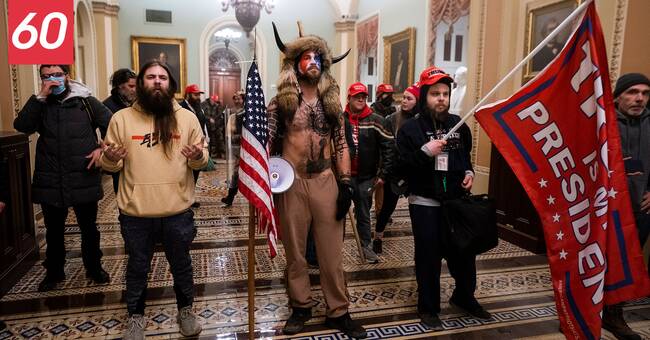The shattered glass had barely been cleaned from the Capitolium's corridors before a Supreme Court trial against President Trump began.
Many were angry at him, including many Republicans.
Republican Senate Leader Mitch McConnell called Trump "responsible, morally and in practice" for what happened, and the party's leader in the House of Representatives Kevin McCarthy expressed support for a truth commission on Trump's responsibilities.
But the anger subsided and when it was time to vote, there were ten Republicans in the House of Representatives and seven in the Senate who voted for the Supreme Court and to overthrow the President in the Supreme Court.
Neither McConnell nor McCarthy were among them.
And those who chose to go against the president have had to pay for it.
"Betrayal of the party's core values"
Liz Cheney, one of the most powerful Republicans, lost a leadership position in the party, and in her home state of Wyoming, her party district voted through to stop calling her a Republican.
Dan Newhouse from the state of Washington received resignation demands from his own party district and Michigan Member Fred Upton's decision was called a "betrayal of the Republicans' core values".
For two of the congressmen, Adam Kinzinger from Illinois and Anthony Gonzalez from Ohio, the criticism has been so harsh that they have announced that they will not stand for re-election.
Challenged in primary selection
It was President Trump's unwillingness to act during the storm that prompted South Carolina Republican Tom Rice to vote in federal court.
A few months later, 12 other Republicans had signed up to challenge Tom Rice to become the district's candidate in the midterm elections this fall.
All but one of the Trump-critical Republicans in the House of Representatives have seen themselves challenged by other candidates ahead of the primary.
Many of the challengers have explicitly said that they stand up because of how the sitting politicians voted in the Supreme Court process against Trump.
Several of them have also questioned the election result.
"There are many Republicans who do not support me, and I fully respect that," said Jaime Herrerra Beutler of the state of Washington in February, whose challenger received support from Donald Trump.
It is not unlikely that the challengers will succeed
Among the seven senators who voted to overthrow Trump in the Supreme Court, there are three whose term ends after the midterm elections in November.
Two of them, Bill Burr from North Carolina and Pat Toomey from Pennsylvania, have announced that they are not running for re-election.
The third, Lisa Murkowski from Alaska, is also being challenged by a candidate who has received Donald Trump's support, and the ex-president has also promised to go to Alaska to campaign against Murkowski.
So there are about ten Republican congressmen and senators who may be succeeded by Trump loyalists ahead of the midterm elections.
Given that support for former President Trump is still very high, it is not unlikely that many of the challengers will succeed.

